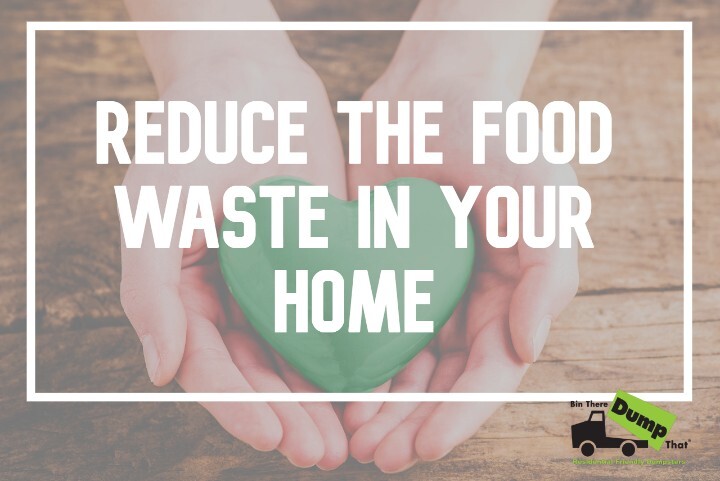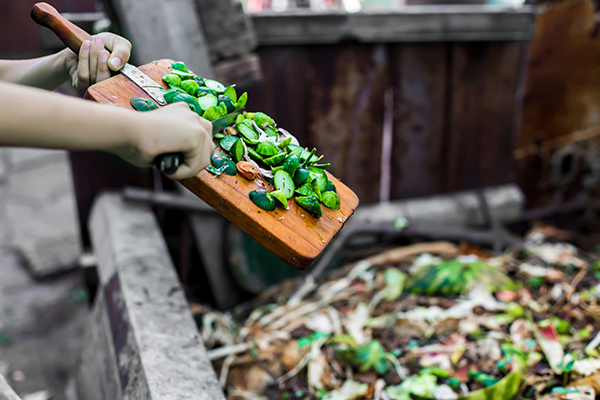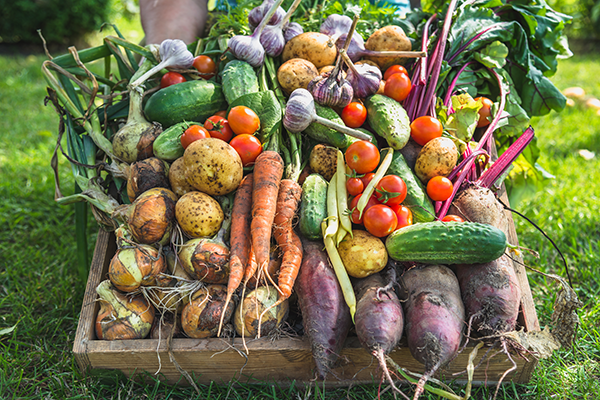
Maintain A Green Lifestyle: Why We Should AVOID Food Waste
We all want to do our part to reduce our carbon footprint, but it's not always clear what individual families can do to help. What if we told you that by reducing food waste in your home you can make a major contribution to a greener planet? Every year we contribute to food loss and waste.
That might sound a bit too good to be true, but if every family makes a conscious effort to minimize food waste we can keep more than 20 tons of waste out of landfills according to the EPA. With some easy to follow lifestyle changes, we can make the switch to a greener lifestyle.
Why We Should Avoid Food Waste
Most of us don't give a lot of thought to reducing food waste — not because we don't care. In most cases, we just don't realize the impact it has on multiple levels. Here are 3 great reasons for reducing food waste.

1. Reduce Carbon Emissions
Every item of food we consume from a grocery chain is delivered by a truck or train. In many cases, it also requires heavy farm equipment to cultivate it. All of these steps produce greenhouse gas emissions, so if each one of us can minimize food waste, it reduces the number of trips those trucks need to make and helps to lower carbon emissions overall.
2. Decrease Water Usage
A less obvious benefit of reducing food waste is that it reduces the amount of water we have to use in the production process. Freshwater is a scarce commodity and anything we can do to conserve it is worth the effort. According to the World Bank, 70% of the freshwater we consume is used for agriculture. Cutting back on its use will make sure there's enough freshwater available for future generations.
3. Cost Savings
We can't forget about the positive effect reducing food waste can have on our own wallets as well. According to most estimates, we waste more than $1000 per year on food waste. With climate change affecting food production around the planet, a lot of things in grocery stores have increased in cost. Buying from local food vendors may also offer an opportunity to save money compared to shopping at more popular grocery stores. By making a few simple every day changes to our lifestyle we can minimize food waste and keep a lot more money in our pocket for family vacations, major purchases or simply to add to our retirement fund.
What is The Best Way to Reduce Food Waste?
For some of us, we know that reducing food waste is something we should be looking at, but we're concerned we'll have to make major changes to our daily lives. The truth is, there are a number of things we can do to waste less without making any big changes. Here are 3 things we can do to reduce food waste without turning our family life upside down.

1. Buy What You Need
One of the simplest things we can do to start reducing food waste is to only buy what we need. Buying in bulk may seem like a good idea, but for many families, much of those extra supplies are wasted and end up in the landfill.
A great way of making sure that you only buy what you need is to create a weekly family menu. Work out how many ingredients you need for each of those planned meals and only buy enough to fill the meal plans. You can also keep a diary to track how much is actually consumed each week to refine your purchases even further and help reduce wasted food.
2. Don't Make More Food Than Needed
Once you've had a few weeks to track what your family actually eats in real-time, you can adjust what you actually make at each meal. If you're a family that loves to cook, chances are you will often make more than your family can possibly eat at each sitting and thus having a lot of food thrown away. We can begin to make a real contribution to reducing wasted food by reducing the portion sizes we make at each meal.
3. Make One or Two Days a Week Leftover Meal Days
Even if you're extra careful with how much food you make at each meal, you'll probably still have some leftovers. There's no need to worry too much about this, instead, make one or two days a week leftovers day. If you choose a day that's later in the week you'll be able to use most of the leftovers in your fridge and you might even be able to let the kids pick their favorite from the options available. It can be turned into a fun family event and saves the trouble of cooking food every day!
What are the Ways to Avoid Wastage of Food?
If you're truly committed to transforming your home into a green household there are some changes you can make that require a bit more effort but will go a long way to reducing food waste in your home. Here are our 3 top suggestions for changes you can make to avoid food wastage in the home.

Start Composting Food Waste
If you like to garden then you already have a better use for any leftovers than simply throwing them in the trash. Why not create a compost heap in your backyard? There are plenty of great tools available such as compost bins and tumblers that make composting a breeze and you can easily get started for well under $100. You’ll feel better for keeping your food waste out of the landfill and you’ll have some great natural fertilizer for your garden. Before you compost food, consider if it's still edible food or if it really must be thrown away.
Grow Your Own Produce
Now that you have a compost heap, why not consider using the fertilizer it produces in your new vegetable garden? By growing your own vegetables you’ll reduce the number of items on your shopping list and you’ll make fewer trips to the grocery store. You’ll also be making a small contribution to reducing the shipments of produce to grocery stores. If each household in North America made the same commitment it would make a major contribution to reducing greenhouse gas emissions overall.
Don't be Married to the Best Before Date
Most consumers find the best before dates on food a bit confusing. Instead of taking any chances with food that might have expired, they’ll throw it out before that date arrives. In most cases, food will remain perfectly edible for up to a week after the best before date. Instead of treating that date on the package as a hard and fast rule, rely on your senses to tell you when the food is actually past its usable limit. This will help in reducing food waste in your home and it’s one more way to help maintain a green lifestyle.
Related Blog Posts
- Revive Your Home for Spring with This Spring Home Maintenance Checklist
- 10 New Home Trends That Will Make Your Friends Jealous
- How Our Dumpsters Support Realtors and Property Managers: A Comprehensive Guide
- 12 Jaw-Dropping Clutter Statistics That Will Make You Want to Declutter Today!
- Unlocking Space: The Complete Guide on Pocket Door Installation
- Step by Step Guide on How to Install Carpet Like a Pro




